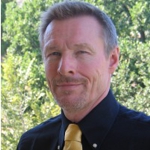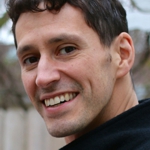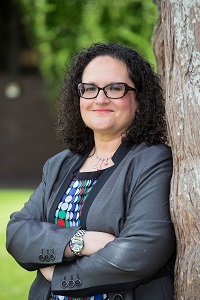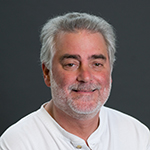Title/theme of conference: Engaging Learners for Sustainable Future
Short description:
The conference took place at Helsinki, in Finland on 31.8.2015 – 4.9.2015.
The keynote speakers of the conference were the following:
Ilka Parchmann

Ilka Parchmann is Professor for Chemistry Education at Kiel University and Head of the Department of Chemistry Education at the Leibniz Institute for Science and Mathematics Education, IPN, in Kiel. In June 2014, she was elected as Vice President for the areas of teacher education, knowledge transfer into education and public (‘science oureach’) and higher education at Kiel University.Prof. Parchmann has a teaching degree as a secondary school teacher for chemistry and biology, and a Phd in chemistry education. Her fields of interest in research and development focus on teacher education programs, measures to foster young talents in science, and context-based approaches for science education in regular classes and enrichment courses at school and in out-of-school settings. Until July 2014, she was Chair of the Division of Chemical Education and Moleculra Sciences, and she still is the chair of the German Association for Chemistry and Physics Education (GDCP). She is the editor of two teacher journals and active in different boards of educational programs and institutions.
Marianne Achiam

Marianne Achiam is an Associate Professor at the Department of Science Education, University of Copenhagen. She jas a MSc in Biology and a Phd in Science Education. Her research interests include didactic transpositions, or the ways in which science is transformed by educators and insitutions as it is taken from its original (research) context and taught in various educational contexts. Contexts of particular interest are out-of-school settings such as museums, science centres, zoos, aquaria, and botanical gardens.
Yrjö Engeström

Yrjö Engeström is Professor of Adult Education and Director of the Center for Activity Theory and Developmental Work Research at the University of Helsinki. He is also Professor of Communication at University of California, San Diego. He has a long history within the framework of cultural-historical activity theory and also as the main developer of this theory of ecpansive learning. He has studied transformations in work and organizations, combining micro level analysis of discourse and interaction with historical analysis and modelling of organizations, combining micro level analysis of discourse and interaction with historical analysis and modelling of organizations as activity systems working through developmental contradictions. Now he focuses especially on coconfiguration as a new way of organizing work, and expansive learning in multi-activity settings.
Noah Weeth Feinstein

Noah Weeth Feinstein a member of the faculty in the Departments of Curriculum & Instruction and Community & Environmental Sociology at the University of WisconsinMadison. His work explores the value of science in the social and political lives of non-scientist citizens. He is interested in identifying and developing social mechanisms, through which scientific institutions and practices can make societies more, rather than less, democratic, and he believes that some of those mechanisms are educational in nature. Feinstein’s current projects focus on public engagement with science among parents of recently diagnosed autistic children, the contribution of learning (writ large) to climate change adaptation, the impact of changing scientific practices on scientist outreach, and the need for museums and science centers to forge better connections with their diverse communities.
Sibel Erduran

Sibel Erduran is Professor of STEM Education at University of Limerick, Ireland where she is the Director of the National Centre for Excellence in Mathematics and Science Teaching and Learning. She is an Editor for International Journal of Science Education, Section Editor for Science Education and Associate Editor for Irish Educational Studies. Currently she serves as a Director on the IHPST Council and is Secretary of the Social Sciences Committee of the Royal Irish Academy. Previously, she acted as the NARST International Coordinator and served on the NSTA Research Committee. She has held Visiting Professorships at Kristianstad University, Sweden and Bogazici University, Turkey. Her research interests focus on the applications in science education of interdisciplinary perspectives on science, particularly the epistemic practices of science.
Norman G. Lederman

Norman G. Lederman is Chair and Distinguished Professor of Mathematics and Science Education at the Illinois Institute of Technology. Dr. Lederman received his Ph.D. in Science Education and he possesses MS degrees in both Biology and Secondary Education. He is internationally known for his research and scholarship on the development of students’ and teachers’ conceptions of nature of science and scientific inquiry. He is author or editor of 10 books and15 book chapters, published over 200 articles in professional journals, and made over 500 presentations at professional conferences around the world.Dr. Lederman is a former President of the National Association for Research in Science Teaching (NARST) and the Association for the Education of Teachers in Science (AETS, now known as ASTE). He has served as Director of Teacher Education for the National Science Teachers Association (NSTA). He has received the Illinois Outstanding Biology from the National Association of Biology Teachers and the Outstanding Mentor Award from AETS. Recently he has been named a Fellow of the American Association for the Advancement of Science and the American Educational Research Association, and has received the Distinguished Career Award from the National Association for Research in Science Teaching.
Photos



